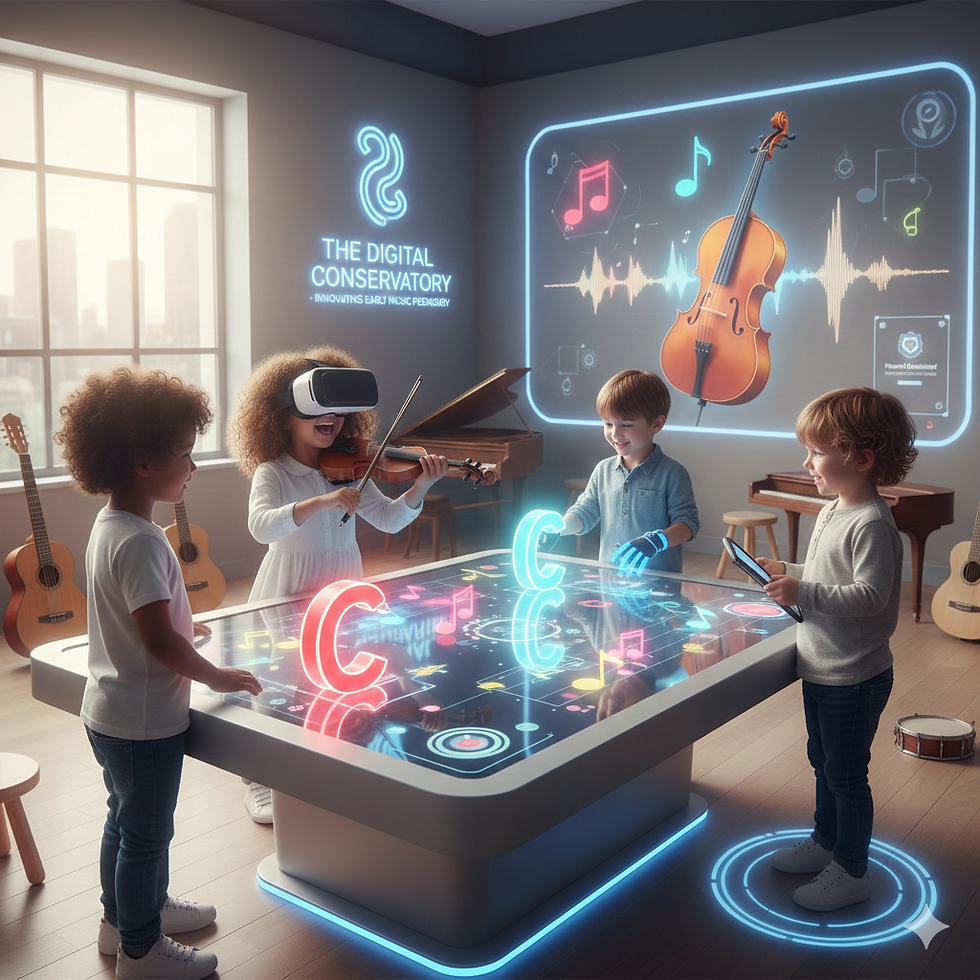"The Producer's Secret: Why Sound Design Is Your Most Powerful Skill"
- Aug 4, 2025
- 2 min read
Updated: Aug 12, 2025
As a music learner, you've probably spent countless hours on theory, scales, and perfecting your instrument. That's the foundation of great music. But what if I told you there's a powerful tool that can make your music truly unique and modern? It’s called sound design, and it's less about the notes you play and more about the sounds you create.
Think of it this way: traditional music education teaches you how to paint with a pre-selected set of colors. Sound design teaches you how to mix and create your own colors from scratch. It’s a shift from being just a musician to becoming a sonic architect.
Why You Should Ditch the Notes and Embrace the Noise
Learning to design sound is a game-changer for any music producer. It doesn't replace your existing skills; it enhances them. Here’s how focusing on sound-based music can elevate your craft.

1. Become a Sonic Architect, Not Just a Musician
Sound design is about building your music from the ground up, starting with the sound itself. Instead of just picking a "piano" or "synth pad" from a menu, you'll learn to craft a sound from a sine wave, a field recording, or even a sample of a friend's voice. This creative freedom lets you build a unique audio identity. When you design your own sounds, you're not just making music; you're creating a world of sound that is uniquely yours.
2. Unlock a Deeper Listening Experience
Sound design forces you to listen to everything with a new, critical ear. You’ll start to hear the intricate layers in your favorite songs—the subtle texture of a kick drum, the way a synth pad swells, or the complex reverb on a vocal. This isn't just passive listening; it's active analysis. This heightened awareness of sound will make you a better mixer, a more intentional producer, and a more appreciative music lover. You'll hear the world differently, too, noticing the sonic qualities of everything from a refrigerator hum to a car engine.
3. Prepare for a Real-World Career
The modern music industry is vast and goes far beyond writing pop songs. It's about scoring films, creating the soundscape for video games, and designing audio for podcasts and commercials. These fields demand a deep understanding of sound and synthesis. Learning sound design gives you the technical and creative skills needed to thrive in these diverse and growing areas. It makes you a more versatile professional and opens up a wider range of career paths you might not have considered before.
Your Creative Journey, Redesigned
Learning sound design isn't about following a rigid set of rules; it's about experimentation and discovery. It's a hands-on approach that encourages you to ask "What if?" and explore the endless possibilities of audio. You'll learn to see your digital audio workstation (DAW) not just as a recording device, but as a laboratory for creating something entirely new.
The future of music is not just about the notes you play—it's about the sounds you design. By embracing this approach, you're giving yourself the tools to create not just good music, but unforgettable music.



Comments